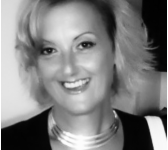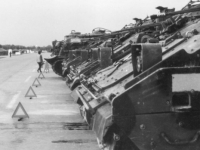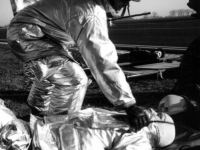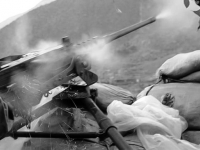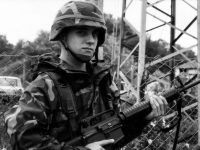Lifestyle
Female war correspondents
Award of Excellence for Journalism
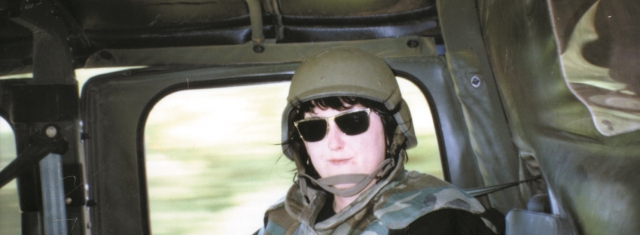
USPA NEWS -
U.S. intervention in Bosnia ended the fighting and served to countain a conflict that threatended to spill over into broader Europe. It also bought time for a political solution to be reached and halted the humanitarian crisis
War is the most horrible act of the human race
““ more than 100,000 Bosnian Muslim and Croatian civilians had died in the worst act of genocide in Europe since the Holocaust. Although two decades have passed since the end of the war, the prospects for lasting peace and a true multiethnic society to emerge in Bosnia seem, at best, day,- to-day. Rita Gaal has been working as a photo journalist for long decades. At the beginning of her career, she pioneered as the first female war correspondent in Hungary while working for the Public Affairs Office of the United States Army as part of the NATO peacekeeping mission in the Balkans War.Her work greatly contributed to fostering and maintaining a friendly relationship between the American military and the local civilian population. For her exemplary abilities and achievements, Rita received an award by the Pentagon in 1999, presented by Defense Secretary Mr. William Cohen during his visit to Taszar Air Base in Hungary. At the end of the Balkans War and the redeployment of NATO troops she founded the second Hungarian language newspaper in the United States, the American-Hungarian Chronicle. Since then she has been busy researching and preserving the linguistic and cultural heritage of second generation Hungarians in America.
Why would a 20-year-old girl work in a war zone instead of working as a journalist for a publisher in a safe and comfortable office?
-With so much time gone at 50 I believe that young people are motivated by totally different things. I was always very ambitious, and, no offense to anyone, but I just can´t stand mediocrity. I could never imagine my life as a simple housewife ““ that would never have worked for me.
You´re not the only journalist in the family, if I´m not mistaken.
-That´s right. My grandfather was a writer. My father worked as a journalist at a military magazine at the air force in Veszprem. I didn´t intentionally pick this career ““ it was a matter of course with my family background. Naturally, at the time that wasn´t all that rosy. I remember that while my buddies were going on vacation or to camp, I had to spend my entire summer holiday reading. Then I was really mad at Dad for this, but now I am very grateful.
-That´s right. My grandfather was a writer. My father worked as a journalist at a military magazine at the air force in Veszprem. I didn´t intentionally pick this career ““ it was a matter of course with my family background. Naturally, at the time that wasn´t all that rosy. I remember that while my buddies were going on vacation or to camp, I had to spend my entire summer holiday reading. Then I was really mad at Dad for this, but now I am very grateful.
How did you get involved with the war?
-The town we lived in was so close to the border that the windows of my room were trembling from the shockwave of the bombs. It was horrible just to hear it; meanwhile I was thinking of our relatives in Eszek, wondering if they were all right. A few days later there was a knock on our door, and one of our relatives, a man was standing there, crushed and terrified. He didn´t say a word when he saw me, just looked at me with fear in his eyes.Milan was a Croat; his wife Maria was a Serb. The Serbs and the Croats were fighting the war. Milan came to me for shelter. He escaped across the border, because if he had stayed, he would have been drafted and forced to fight his wife´s family.
-The town we lived in was so close to the border that the windows of my room were trembling from the shockwave of the bombs. It was horrible just to hear it; meanwhile I was thinking of our relatives in Eszek, wondering if they were all right. A few days later there was a knock on our door, and one of our relatives, a man was standing there, crushed and terrified. He didn´t say a word when he saw me, just looked at me with fear in his eyes.Milan was a Croat; his wife Maria was a Serb. The Serbs and the Croats were fighting the war. Milan came to me for shelter. He escaped across the border, because if he had stayed, he would have been drafted and forced to fight his wife´s family.
Milan told me a lot about what was happening in Bosnia then. I heard some terrible things from him. I promised him to help rescue the rest of his family, because he had escaped leaving his wife and two daughters behind. What I saw and experienced on the way is hard to describe. Since I did not set out as a journalist ““ only somebody trying to help her relative, I did not bring a camera with me, and at that time cell phones weren´t around yet, so I could not take any pictures.
When I returned to Hungary with the rest of the family, I felt I had to go back with my camera, because the world had to know about the atrocities happening down there. That´s how it all started. Later in 1995 the US Army arrived in Hungary, and I started working with the PAO, produced a newspaper for the soldiers and worked as a war correspondent for European news agencies, all those years up to 2001.
Her work greatly contributed to fostering and maintaining a friendly relationship between the American military and the local civilian population. For her exemplary abilities and achievements, Rita received an award by the Pentagon in 1999, presented by Defense Secretary Mr. William Cohen during his visit to Taszar Air Base in Hungary.
You are the only Hungarian female journalist awarded by the Pentagon for her work.
-I am very proud of that award. I had the honor to receive it personally from the Secretary of Defense Mr. William Cohen.
You are the only Hungarian female journalist awarded by the Pentagon for her work.
-I am very proud of that award. I had the honor to receive it personally from the Secretary of Defense Mr. William Cohen.
You pioneered being a female war correspondent in Hungary. How did you live through those atrocities as a woman? Can you prepare yourself mentally, physically as well as a man?
-That´s a very good question. I have never understood why people think that a woman cannot bear as much as a man. Perhaps it´s harder for her to lift a heavy rucksack ““ that´s all. A female war correspondent can do just as well as any male counterpart. As a press photographer, you feel helpless. Around you are medics, security personnel, people doing good work. It can be agonizingly painful to think that all you´re doing is taking pictures. Anyone saying they aren´t frightened during war is either lying or a fool.
-That´s a very good question. I have never understood why people think that a woman cannot bear as much as a man. Perhaps it´s harder for her to lift a heavy rucksack ““ that´s all. A female war correspondent can do just as well as any male counterpart. As a press photographer, you feel helpless. Around you are medics, security personnel, people doing good work. It can be agonizingly painful to think that all you´re doing is taking pictures. Anyone saying they aren´t frightened during war is either lying or a fool.
What are your future plans?
-I am currently expecting to receive my license to become a White House News Photographer. If I get it, I believe I will have reached the peak of my career ““ the highest peak any Hungarian photojournalist can reach.
Are you not planning on returning to dangerous areas?
-I often think about it. Maybe if I get a special offer, but I´m not planning on it. I spend most of my time teaching. I am transferring my experience to female correspondents who are preparing to go to war zones, because they can go to no one else for such training.
-I am currently expecting to receive my license to become a White House News Photographer. If I get it, I believe I will have reached the peak of my career ““ the highest peak any Hungarian photojournalist can reach.
Are you not planning on returning to dangerous areas?
-I often think about it. Maybe if I get a special offer, but I´m not planning on it. I spend most of my time teaching. I am transferring my experience to female correspondents who are preparing to go to war zones, because they can go to no one else for such training.
There has always been a need for war correspondents: politicians, governments used them; they were the ones who informed families whether or not their soldier sons were still alive at the war This is not only a profession; this is a vocation that stays with you the rest of your life. I didn´t do it for awards, either. I simply wanted to show people the horrors of war through my pictures, to show how many innocents victims fall to the terrible, senseless massacre committed by us to fellow humans. War is the most horrible act of the human race.
( editor) : Her work is essential in the United States, without her work and decades of expert knowledge and experience our magazine would practically become dysfunctional. In appreciation of her high quality work Editor-In-Chief of Lloyd Magazine, presented her with an Award of Excellence for Journalism at her 25th anniversary as a photojournalist.
Liability for this article lies with the author, who also holds the copyright. Editorial content from USPA may be quoted on other websites as long as the quote comprises no more than 5% of the entire text, is marked as such and the source is named (via hyperlink).

